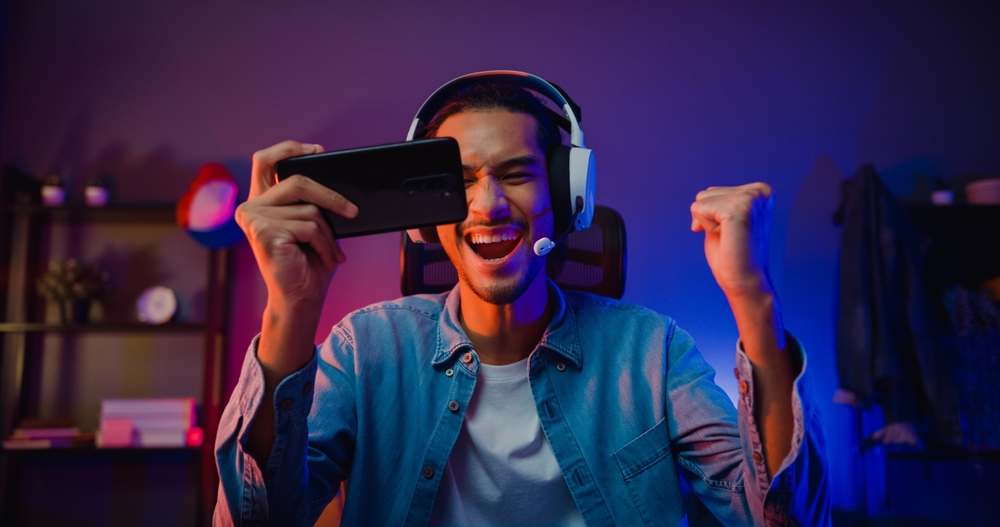Competitive gaming, also known as esports, has transformed from casual living-room matches into a billion-dollar global industry. Players now compete in arenas, watched by millions online, with sponsorships, salaries, and global recognition at stake. But behind every professional gamer or dedicated competitor lies a complex psychological journey—a mix of motivation, pressure, focus, and emotional control.
In this article, we’ll dive into the psychology of competitive gaming, exploring what drives players, how mental factors influence performance, and why understanding these psychological elements is crucial for success.
1. The Drive Behind Competition
At the heart of competitive gaming lies the human instinct to compete. Psychology identifies this drive as part of our need for achievement and recognition. Gamers don’t just play for fun—they want to win, prove their skill, and gain respect in their community.
- Achievement motivation: Many gamers set internal goals such as reaching the next rank, beating a rival, or achieving perfection in their gameplay.
- Social recognition: Winning in front of peers or being acknowledged by fans gives a powerful sense of validation.
- Self-improvement: Gamers often measure progress in small victories, like faster reaction times or improved decision-making.
This mix of motivation explains why players keep coming back to the battlefield, even after setbacks.
2. The Role of Stress and Pressure
Competition naturally brings stress and performance pressure. In esports, this can be amplified by live broadcasts, prize money, and huge audiences.
- Performance anxiety: Similar to stage fright, some players feel nervous before matches, affecting reaction time and decision-making.
- Choking under pressure: In psychology, “choking” describes when a player’s performance drops in high-stakes moments. Even elite players aren’t immune.
- Resilience: Successful gamers learn to manage stress through practice routines, relaxation techniques, and mental preparation.
Top competitors often train not only their mechanical skills but also their mental stamina, knowing that psychology can decide the outcome of a match.
3. Focus and Flow State
Many gamers talk about being “in the zone.” Psychologists call this the flow state—a mental condition where a person is fully immersed, performing at their peak, and losing track of time.
Characteristics of Flow in Gaming:
- Deep focus and concentration
- Quick decision-making without hesitation
- Sense of control and confidence
- Reduced self-doubt and distractions
Achieving flow isn’t accidental. It happens when the challenge level of a game matches the skill level of the player. Too easy, and boredom sets in; too hard, and frustration takes over. Competitive gaming often provides that perfect balance, pulling players into this psychological sweet spot.
4. Team Dynamics and Communication
Not all competitive games are solo battles. Many, like League of Legends, CS:GO, or Dota 2, rely on team coordination. The psychology of group competition adds another layer of complexity:
- Team cohesion: Teams that bond and trust each other often perform better under pressure.
- Communication: Clear, concise callouts reduce mistakes and improve response time.
- Leadership: A strong in-game leader can calm nerves, organize strategies, and boost morale.
- Conflict management: Miscommunication or frustration can lead to “tilt” (emotional frustration), breaking team performance.
Great teams work not just on mechanics but also on psychological harmony.
5. The Impact of Mindset
Mindset plays a huge role in competitive success. Psychologist Carol Dweck’s growth mindset theory applies strongly to gaming:
- Fixed mindset players may believe their skill is limited and blame failures on lack of talent.
- Growth mindset players view failure as feedback, constantly adapting and learning from mistakes.
In esports, players who embrace growth mindset are more resilient to losses and improve faster than those who fear failure.
6. Dealing with Tilt
“Tilt” is a term gamers use to describe playing emotionally after a bad loss or mistake. Tilt can destroy performance by clouding judgment and increasing risk-taking.
Common causes of tilt:
- Losing a winnable match
- Toxic teammates or negative chat
- Repeated mistakes or poor luck
Strategies to avoid tilt:
- Taking breaks between matches
- Practicing mindfulness and breathing exercises
- Muting negativity in chat
- Resetting focus by reviewing replays calmly
Professional players train themselves to recognize tilt and avoid letting emotions control their decisions.
7. The Role of Confidence
Confidence is a double-edged sword in gaming psychology:
- Healthy confidence improves reaction time, decision-making, and assertiveness.
- Overconfidence can lead to reckless moves, underestimating opponents, or ignoring strategy.
- Low confidence makes players second-guess themselves, reducing performance.
The key lies in finding a balance—confidence rooted in practice, preparation, and proven ability.
8. Motivation Beyond Winning
While winning is the ultimate goal, successful gamers find motivation in more than just victory.
- Learning mindset: Viewing every match as a chance to improve
- Community involvement: Building friendships and networks in gaming communities
- Passion for the game: Loving the gameplay itself, not just the rewards
- Personal growth: Developing focus, discipline, and strategic thinking that apply beyond gaming
This deeper motivation prevents burnout and keeps players engaged for the long run.
9. Esports and Mental Health
As esports grows, so does awareness of mental health challenges. Long hours, public scrutiny, and competitive pressure can lead to anxiety, burnout, or depression.
Organizations now hire sports psychologists to support players, teaching coping strategies and ensuring mental well-being. Just as physical athletes need coaches and trainers, gamers need psychological support to sustain peak performance.
Conclusion: The Mind is the True Battleground
Competitive gaming is not just about fast reflexes or sharp aim—it’s about the mindset, focus, resilience, and psychology behind every move. Players who master their mental game gain a huge advantage, often outperforming equally skilled rivals who crumble under pressure.
Understanding the psychology of competitive gaming reveals that esports is more than entertainment—it’s a powerful test of the human mind’s ability to adapt, focus, and thrive in high-pressure environments.
Recommended: How Artificial Intelligence is Changing Video Game
